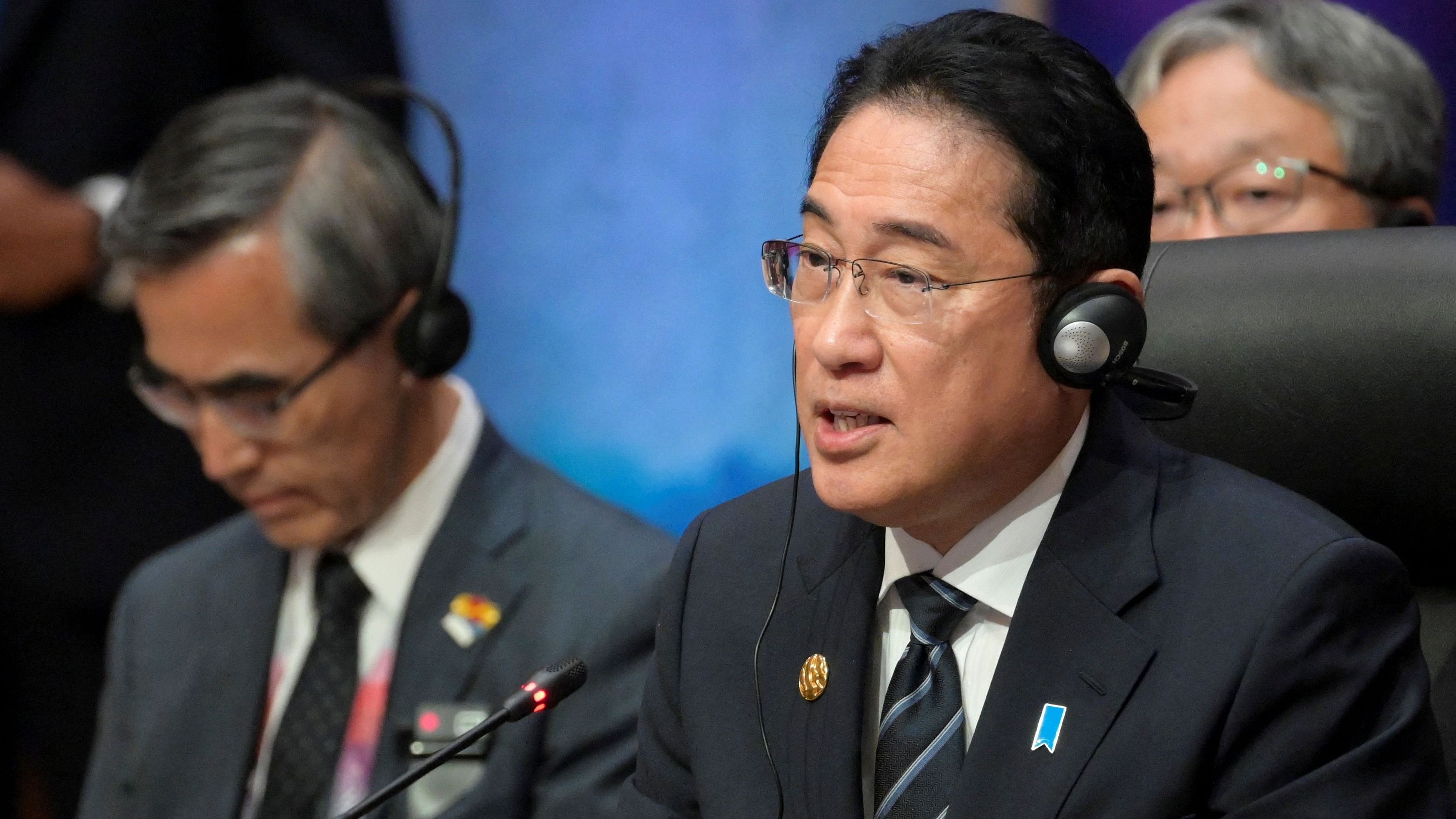
Japan Prime Minister Fumio Kishida.
Credit: Reuters
Japanese Prime Minister Fumio Kishida said on Wednesday he explained Japan's stance on the release of treated radioactive water from the Fukushima nuclear plant to Chinese Premier Li Qiang on the sidelines of a regional meeting in Indonesia.
Japan started releasing the water from the wrecked plant into the ocean last month, drawing strong criticism from China. In retaliation, China has imposed a blanket ban on all aquatic imports from Japan.
A massive earthquake and tsunami in 2011 triggered a nuclear meltdown at the Fukushima Daiichi power plant in the world's worst nuclear disaster since Chernobyl 25 years earlier.
Kishida told reporters he spoke briefly with Li ahead of a session at an Association of Southeast Asian Nations (ASEAN) summit in Jakarta.
"During the chat, I explained Japan's position on the treated water to Premier Li," Kishida said.
Kishida avoided commenting directly on whether he had sought the lifting of the ban on Japan's seafood, repeating that he had explained Japan's position. He added that nothing had been decided on whether he would talk with Li again on the sidelines of a Group of 20 (G20) summit later this week.
Li stated China's position on the water discharge in the conversation, China's foreign ministry said on Thursday.
"The disposal of the water bears on global marine environment, public health and the interest of posterity," ministry spokesperson Mao Ning quoted Li as saying at a regular press briefing.
Li said Japan should meet its international obligations, consult stakeholders fully, including neighbouring countries, and handle the matter in a responsible way.
He also called on Japan to work with China to improve their relations, Mao said.
The talk between Kishida and Li marked the first time the two had met in person, Japan's foreign ministry said. It was also the first high-level talk between the two countries since the release of the water from the nuclear plant north of Tokyo.
A visit to China by the head of Japan's junior coalition party in late August was postponed as relations soured sharply following the water release.
Japan says the water is safe after being treated to remove most radioactive elements except for tritium, a radionuclide difficult to separate from water. It is then diluted to internationally accepted levels before being released.